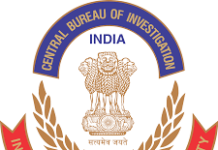The Supreme Court-appointed Justice Sirpurkar commission has ordered the Telangana government, led by K Chandrashekar Rao, to present its evidence on Saturday in the alleged police encounter of four young men accused of gang rape and murder of a 26-year-old veterinary doctor in Shamshabad near Hyderabad in November 2019. The crime sparked widespread outrage across the country, with the subsequent killing of the four accused in police custody dubbed a “Disha encounter” by the media.
The Supreme Court established the Justice Sirpurkar Commission to look into allegations of extrajudicial killings by the Cyberabad Police. The committee finished collecting records in the case earlier this week, according to reports, and has now moved on to the evidence recording phase. Owing to the coronavirus disease (Covid-19) situation, the panel is conducting its proceedings in a hybrid manner, issuing summons for physical presence wherever necessary. So far, it has held 16 virtual hearings and issued orders in 24 police-filed applications.
According to confessions recorded by the police, Disha, the victim’s name given by the police to protect her identity, was a veterinary assistant surgeon at a state-run hospital when she was attacked one night by the four men. Disha was raped and suffocated to death by the four men, who then loaded her body into a truck and burned it beneath a bridge later that night. With the incident causing widespread outrage, the Telangana police were under pressure to act quickly and impose punishment based on a speedy court trial.
On December 6, 2019, while in police custody, all four accused in the Disha gang rape-and-murder were killed under a bridge on the Bengaluru-Hyderabad national highway. The accused allegedly snatched guns and assaulted police officers, according to the police. According to the Cyberabad Police, all four accused were shot dead in the ensuing gunfight. Thousands across the country celebrated the’swift justice’ in the form of the accused’s death, despite the fact that many saw the ‘Disha encounter’ as an extrajudicial execution.






